Review and photographs by Lanthanotus, edited by Suspsy
Here comes another (unfortunately retired) one of the prehistoric plants produced by Safari Ltd, the other two being reviewed here. I did not include it in the first review as my usual retailer didn’t have it in stock anymore and it took some time to find one for a reasonable price.
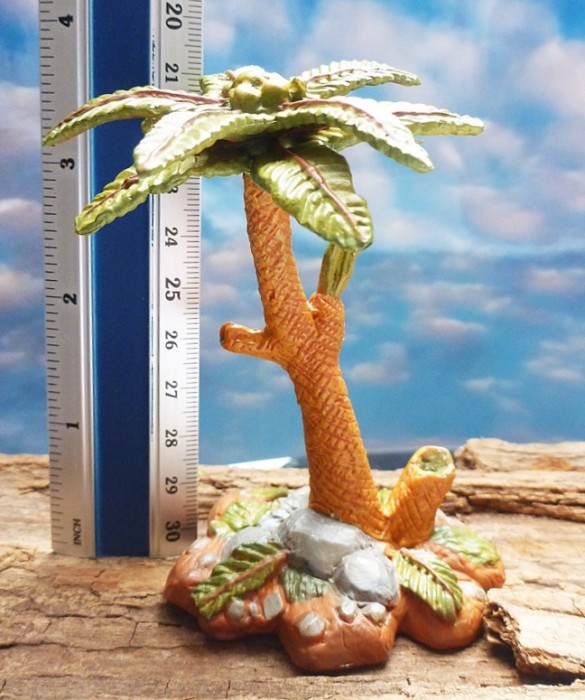
Like the other plants, it’s an overall nice if not too detailed sculpt, but what first struck me was its size and its completely different appearance than in the advertising photo. According to this photo, I expected a model of around 5 to 6 cm(2″) tall that would add some nice undergrowth to the other, more towering plants. Unpacking it, I recognized not only its height of around 10 cm(4″), but also its differences in the sculpt. At first I thought it was some kind of perspective trick and if I bent the plant’s stem, I could almost make it look like on the photo provided by Safari. But in fact, the advertised plant is quite different from the one I obtained and no, the model is no knockoff. As you can see from comparing the photos, the stem on the final product is much elongated and the base is also decorated with some stones as well as greens and scrubs. One can only speculate about these differences. Maybe the smaller sculpt was thought to not be profitable when counting production costs versus retail price, but a photo of a prototype had to be used in order to publish a catalogue on time?
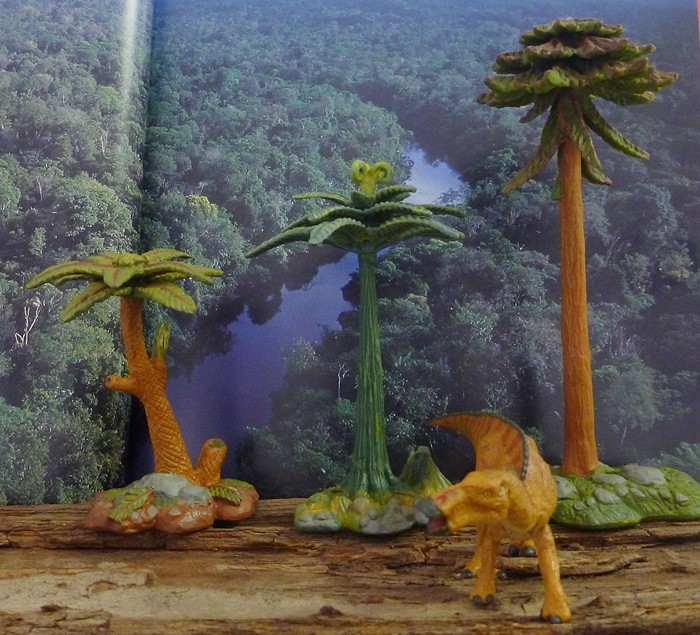
Whatever reason, while the plant can only serve as undergrowth for really big dinosaur models, it still makes a nice addition to any prehistoric animal collection and provides some decent liveliness to the scene. Like the other two plants, it’s set on top of stony underground that’s littered with some small rocks and fallen leaves in different stages of decay–some of them may represent scrubs, but the lack of detail makes it difficult to determine. Cycads nowadays usually grow with a single, unbranched trunk, but occasionally it can split off, although I have never observed this in wild cycads. So it may be a trait a gardener can achieve with special treatment to the plant. I am not too deep into palaeobotany, but given the long history and great variety of cycads, forms like the one represented here may have been well possible.
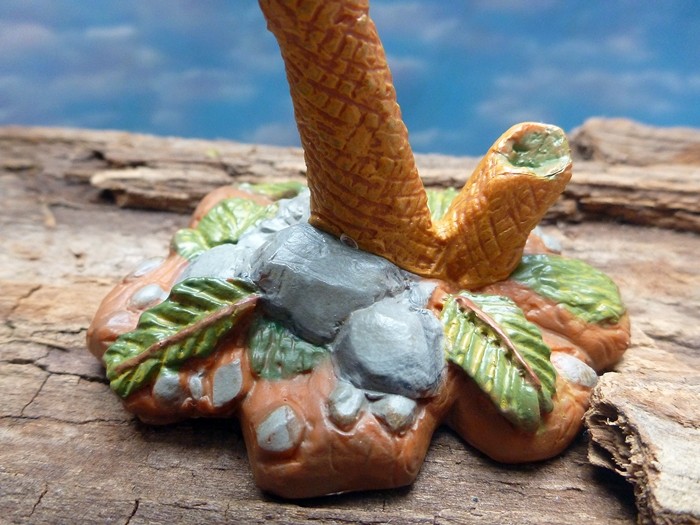
As the model is not specified, it’s not possible to pin down the toy’s resemblance to a specific cycad plant. Furthermore, there are plenty of buds in the center of the crown and it cannot be determined if they would unfold in the right direction from inward to outward (as it is the case for ferns and cycads) or if they are intended to be sculpted as in the tree fern where the buds fold out in the wrong way as correctly mentioned by Tim in the comments for my previous plant review. Let’s just say Safari got it right here. As with the other two models, the paint job is nothing special but serves its purpose, although the addition of some colorful seeds (bright red on the recent Cycas revoluta for example) would have been nice.
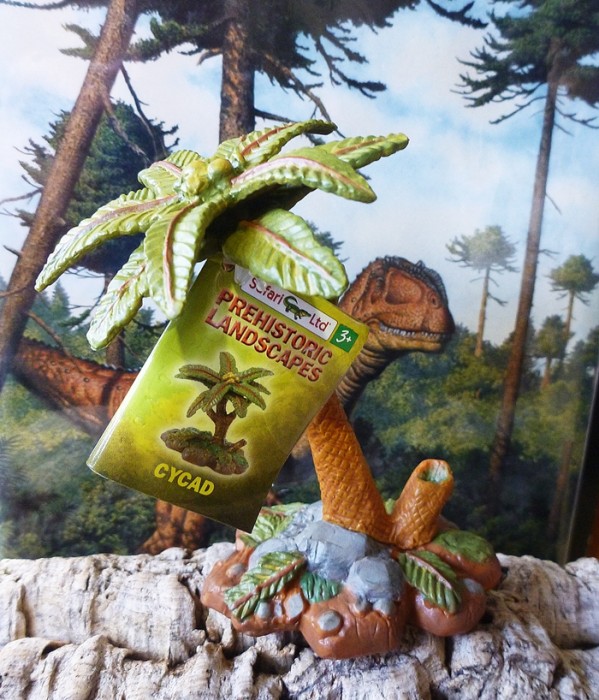
Unlike the other two models, the cycad arrived with a small booklet attached which gives a short description about the plant in different languages. The cycad went into production in 2010 (at least assuming by the copyright printed on the bottom) and retired only a few years later as Safari did not include it in their 2014 catalogue anymore. You still can occasionally find it in some retailer’s stock for around 7 €, otherwise you have to search eBay or other online markets, though prices sometimes are as high as 20 € or more.
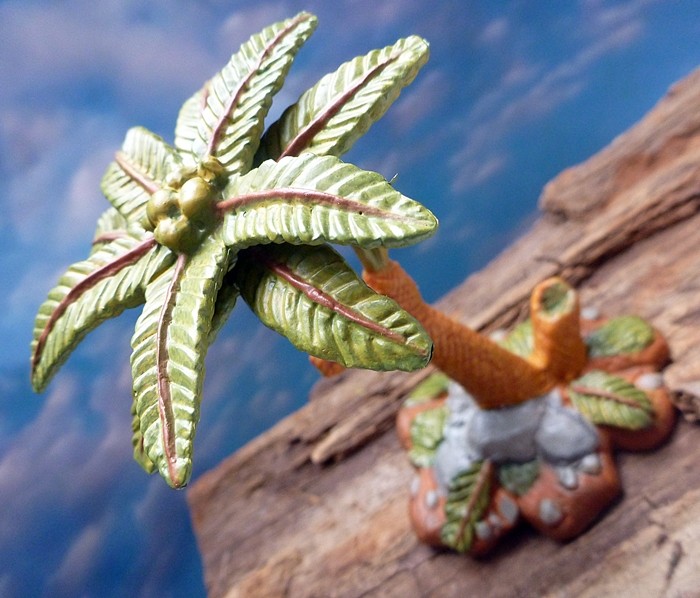
Disclaimer: links to Ebay and Amazon on the DinoToyBlog are affiliate links, so we make a small commission if you use them. Thanks for supporting us!



